Mislabeled videos and images have circulated on social media, as users question the cause of the fires that have so far killed at least 111 people and destroyed more than 2,200 buildings. A leading conspiracy theory is that the fires were started by giant lasers.
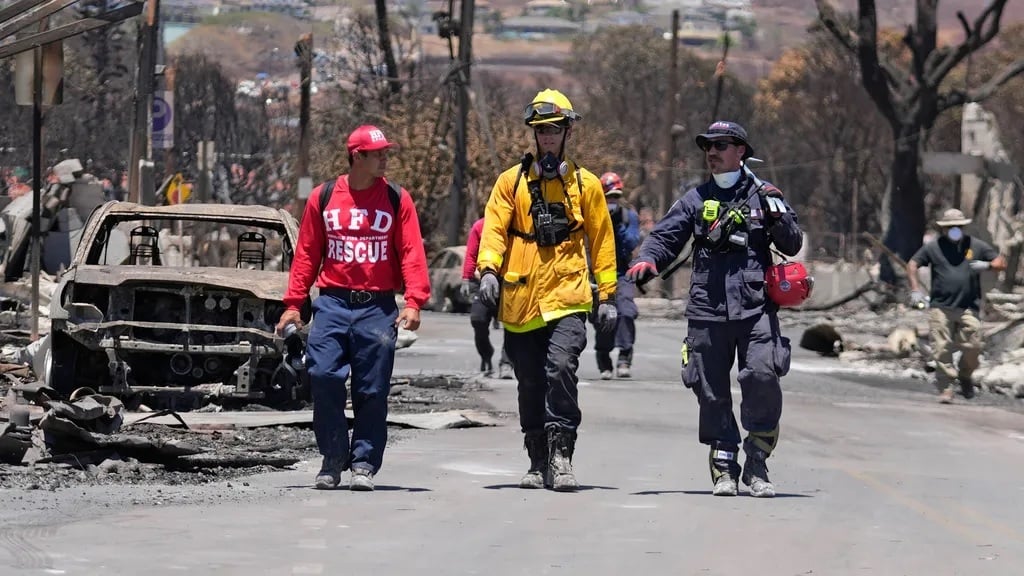
Rescue workers and firefighters are still working tirelessly after the Hawaii wildfire disaster. Photo: AP
"I need to speak up"
Michael Clark, a wildland firefighter on Oahu, quickly decided enough was enough. He posted his own response to a TikToker who claimed the fire was a “directed energy weapon attack.”
“Every year, there are some conspiracy theorists who say, ‘These fires are started by lasers,’ and ‘Why are the houses flattened, but the trees are still standing?’” Clark said in a video posted to his Instagram on Saturday.
“That’s just so gross… You’re just trying to get views on a horrific event. Like, the death toll is still rising, and you’re saying this was started by lasers?” he condemned the TikToker’s baseless and irresponsible comments.
Clark wasn't involved in the Maui fires, but he said he felt a responsibility to reassure people and stop the spread of those lies.
“It’s disturbing to see that there are people who believe there’s this giant laser beam falling from the sky and they’re not going to try to accept climate change or anything like that,” Clark said in an interview. “So I just thought, as a professional wildland firefighter, I need to speak up.”
Herman Andaya, the head of the Maui County Emergency Management Department, resigned Thursday in the wake of the wildfires. The resignation comes more than a week after the disaster destroyed or damaged 2,200 buildings and caused an estimated $5.5 billion in damage. At least 111 people have died and hundreds remain missing.
Some Maui residents said many lives could have been saved if emergency sirens had sounded, but Andaya's agency has opted not to use them, saying they would be ineffective and confusing.
Experts are still working to determine the cause of the fire, which began on August 8. But many agree that environmental factors may have exacerbated the disaster. Winds from Hurricane Dora, a Category 4 storm that passed south of Hawaii last week, fanned the flames, and the region was already in a drought.
The fires have forced thousands of people to evacuate, and local officials warn that the death toll is likely to rise as they continue to search the burned area. So far, just over a quarter of the burned area has been searched, and the disaster is considered the deadliest wildfire in the United States in more than a century.
“Wildland firefighting in Hawaii is very different,” Clark said. “We have a lot of guinea grass and a lot of fast-burning fuels, and typically you imagine Hawaii as a tropical, green, lush place — which it is — but it has a localized climate and there are parts of the island that get super cold, super dry like a desert… and especially with strong winds.”
Don't profit from other people's pain.
Clark said that when he first started working as a wildland firefighter nearly five years ago, he had never heard of conspiracy theories related to wildfires. But over the years, he has seen them become increasingly popular. In 2020, he became known for debunking misinformation about California’s wildfires.
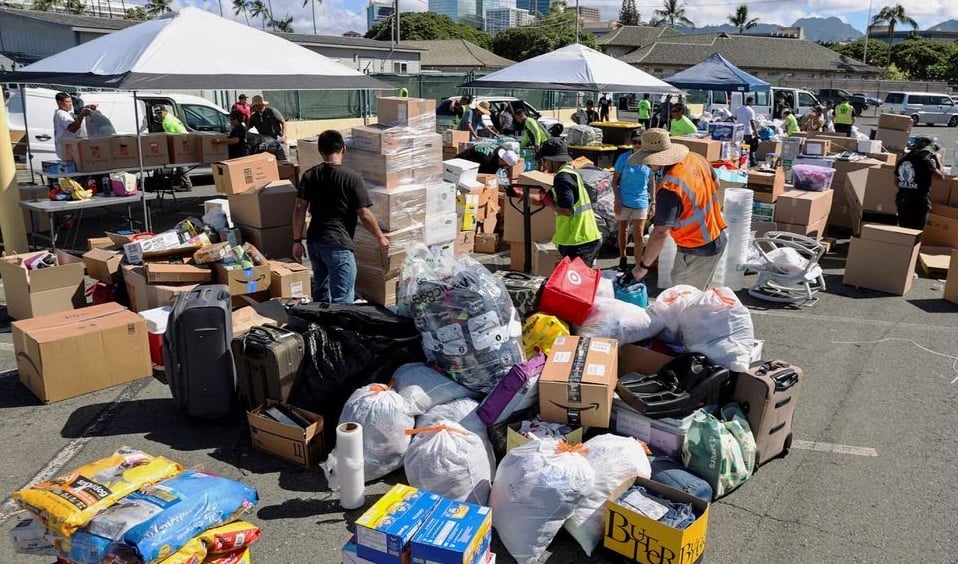
Instead of helping, many people on social media have been spreading conspiracy theories and misinformation during disasters to profit. Photo: Reuters
He encourages those who want to learn more about the situation in Maui to start with local officials and government leaders who are tasked with keeping the community informed. Clark said he’s not sure why conspiracy theories often surface after natural disasters, but noted that they distract from more serious issues, like climate change.
“I don’t necessarily know if these people actually believe this is happening or if they’re just trying to get views, but it’s just so inconsiderate of people who have lost their families and lost their homes,” Clark said. “And instead of taking the time and having a serious conversation about, ‘Hey, why is Hawaii so incredibly hot?’ they’re saying it’s lasers.”
“They see a big event and they know people's emotions are high, so they just want to stir it up,” he said, condemning the insensitive attitude of those who want to exploit other people's pain on video sharing platforms and social media.
Hoang Hai (according to Poynter, Reuters)
Source
























![[Photo] Nghe An: Provincial Road 543D seriously eroded due to floods](https://vphoto.vietnam.vn/thumb/1200x675/vietnam/resource/IMAGE/2025/8/5/5759d3837c26428799f6d929fa274493)

![[Photo] Discover the "wonder" under the sea of Gia Lai](https://vphoto.vietnam.vn/thumb/1200x675/vietnam/resource/IMAGE/2025/8/6/befd4a58bb1245419e86ebe353525f97)


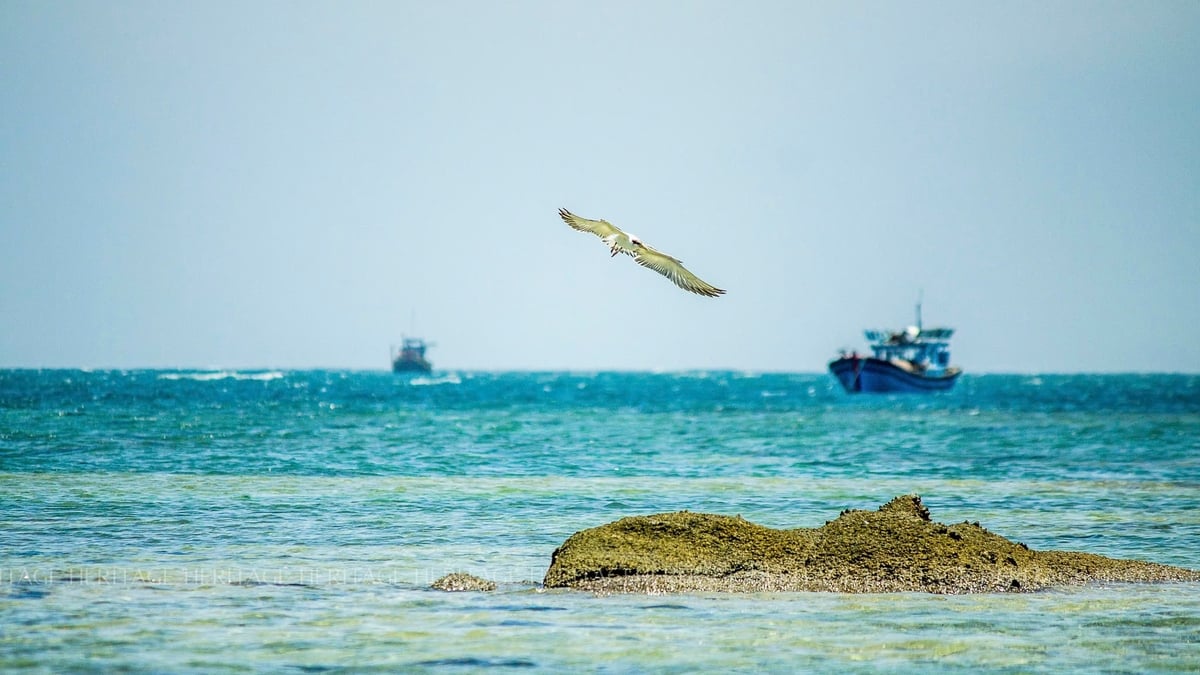


























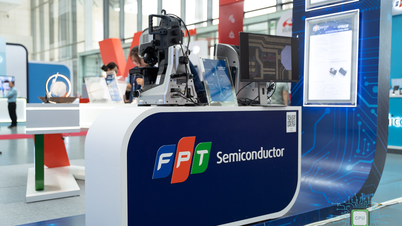

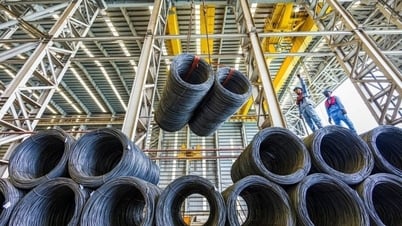



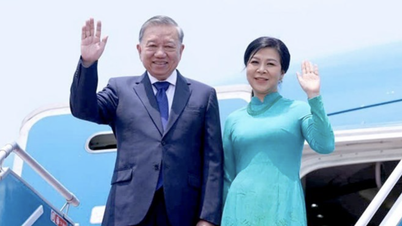


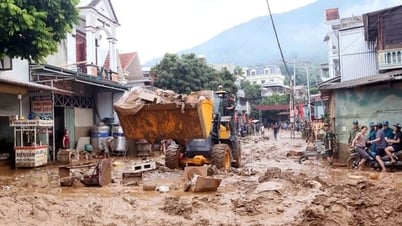



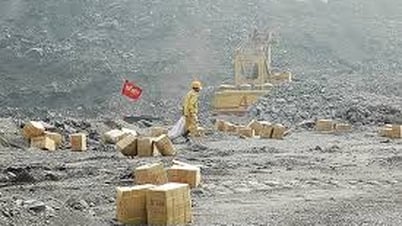

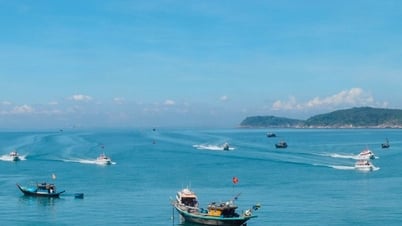
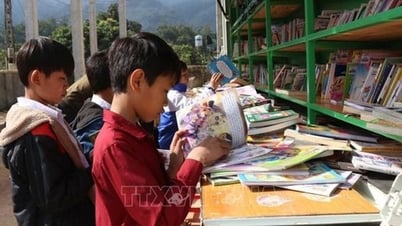

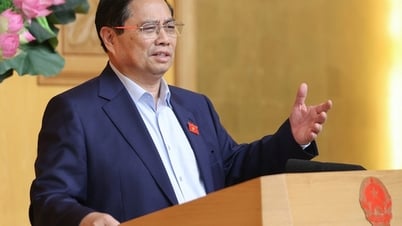
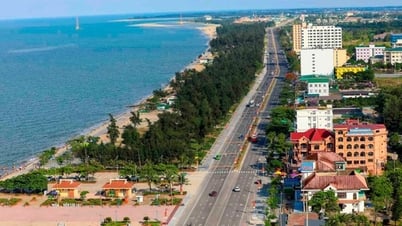




















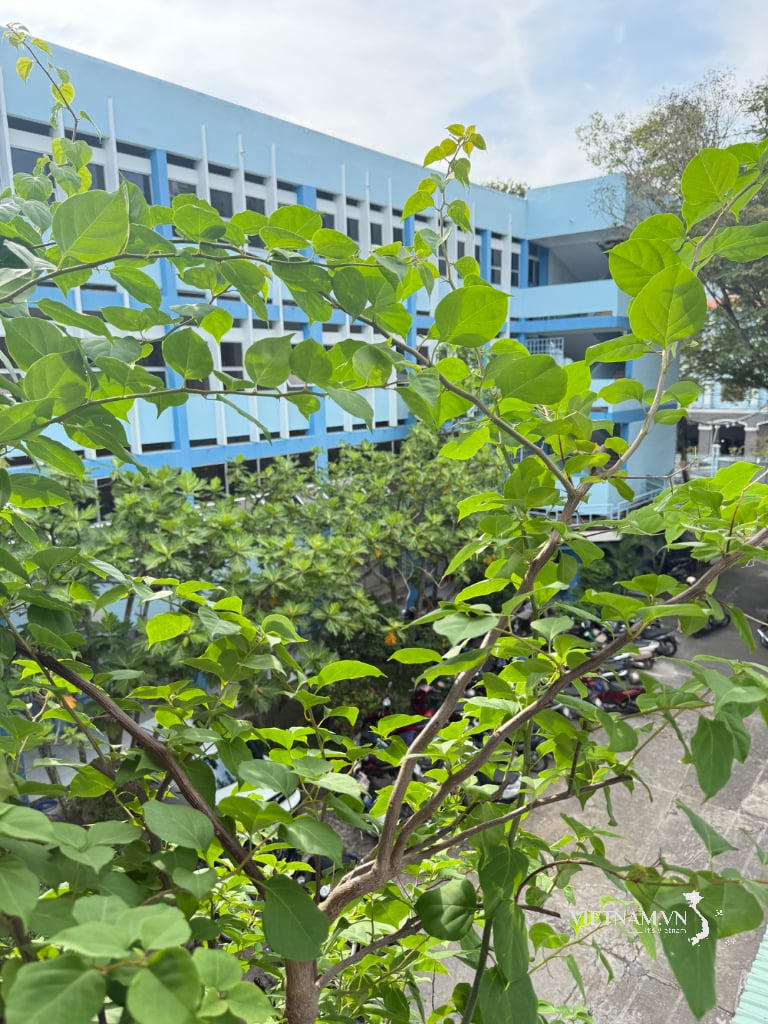
Comment (0)